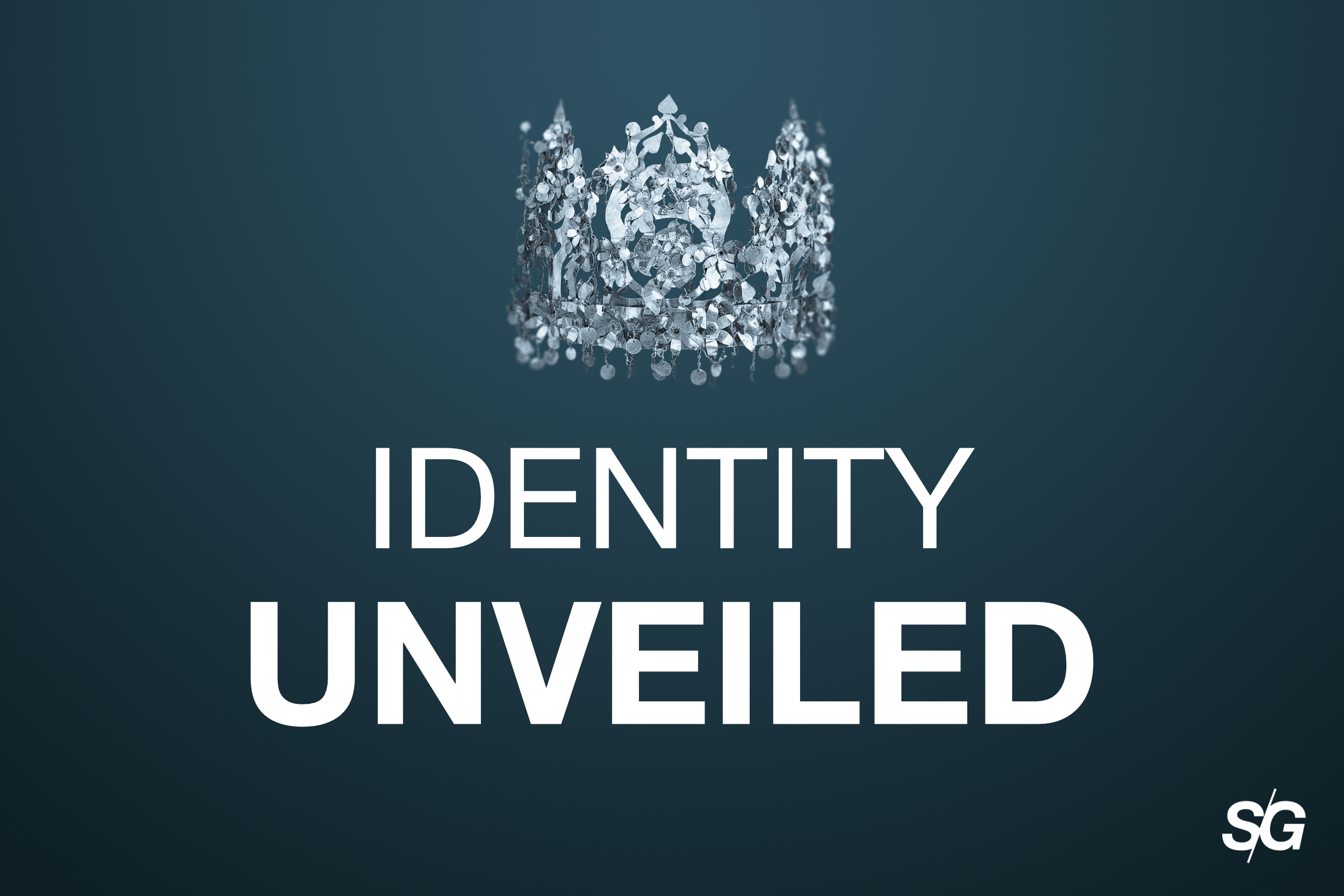Also Available On






Podcast Transcript
Hello Everyone. This is Shirene Gentry with the Identity Unveiled podcast.
Today I’d like to address a topic that is crucial to our wellbeing: our relationship with food. Who doesn’t love good food? We create memories around meals.
I find it interesting that we, as a country and culture, obsess at each end of the spectrum: we have an “all or nothing” attitude regarding eating and exercising with compulsion in either extreme.
How do we find a healthy way of looking at lifestyle and, yes, these daily choices that involve food?
As I type this transcript, it’s vacation week for us. That being said, there will be foods that I prepare and eat that I normally don’t. It’s okay to associate certain events with trying and enjoying food. Examples are special occasions, trips to different places, and holidays. My husband and I enjoy travel, and one of the things that is fascinating to me is to visit a different culture and see what their foods are. I want you to think about the pattern of your eating, not the atypical times I just mentioned.
The goal of this podcast is to help you think broadly, deeply, and even spiritually with who you are and your relationship with food. In addition, this is NOT about shaming. I truly want you to consider your own relationship with food as it currently stands so you can start thinking differently and acting differently from this point forward. Here are some questions for consideration:
- Do you have mastery over what you eat or has what you’ve eaten gained mastery over you?
- Do you use food as a comfort for uncomfortable emotions?
- Do you find yourself frustrated over unsustainable quick fixes that aren’t sustainable?
I want to make the connection between your spiritual being and your physical being rather than compartmentalizing who we are in Christ from our responsibility for holy and honorable self-care.
Because of the identity God has given you, how you steward your body is a direction reflection of how you view yourself and your Creator. To not care for your physical and psychological being indirectly indicates the lack of honor you give to yourself and Him.
Here’s what we know:
- Nutrition is confusing because it’s constantly changing.
- According to the CDC, the U.S. is ranked 3rd in the world for compulsive eating.
- We are a country of quick fixes. If diets worked, we would all be thin.
- We haven’t been taught the value of eating well.
As a life coach credentialed in health and wellness, I pose the following question using a Likert Scale for self rating your current relationship with food:
1 – My daily eating is very unhealthy.
5 – My eating pattern is healthy.
If you’ve read my book, Identity Unveiled, the first part of my book talks about backstory. The same concept can be applied to your relationship with food. With every area of life, we each have a backstory.
Backstory
My earliest memories recall me being a very picky eater as a young child. I was told, “Clean your plate.”
During my teenage years, I could eat junk food with the best of them! My best friend in high school had her driver’s license before I did, so on Fridays we left school early to eat a local hot dog hangout. My order was the same each week: foot long hot dog, fries, and Coke. Then we would go next door to a pastry shop for a chocolate eclair.
My grandmother made the best pan fried chicken. She was a firm believer that breakfast was the most important meal of the day, so I never went to school without a huge breakfast – juice, coffee, and milk along with an entree of some kind. I recall pancakes with the smell of melted butter. At the very least, cereal of some kind. Or perhaps pop tarts, toasted, with melted butter.
I would spend Friday nights with my parents, and I remember Dad making the best tasting spaghetti sauce. Every now and then, my mom would fix something. My favorite dish she would make was a tuna noodle cheesy casserole in the crock pot.
My first two years of college included a combined tuition and food plan, so I could return to the food line as many times as I wanted for every meal of the day! This eventually caught up with me in the spring semester, known as the freshman 15! My grandmother made my favorites upon returning home on breaks – macaroni and cheese, out of a box, and chocolate pudding.
Only after I was married and my husband in professional school did I begin to pay attention to what I was eating. I took only baby steps in changes. What is ironic to me is that while I was growing up and the years of college and early adulthood, we knew very little about nutrition, but the obesity rate was nothing like it is now.
Something has happened in our culture. Something has happened to US. So how do we gain mastery with a healthy mindset?
The point of my sharing my own backstory is that what I do now isn’t at all what I used to do then. This can encourage you too!
It can be helpful to look back to see what was either role modeled in our family of origin or the beliefs that were engrained at an early age (e.g. “Clean your plate”). The question for you to consider is whether your backstory feeds into your current view and use of food. If not, perhaps there was a significant life event or stressor that became the impetus for unhealthy eating patterns (e.g. death of a loved one, divorce, abuse). In these situations, a life event gets “connected” with a (negative) behavior which then perpetuates itself.
Where do we start?
This is a spiritual issue
First, we are clearly told that our bodies house the Holy Spirit of God:
“Do you not know that your body is a temple of the Holy Spirit, who is in you, whom you have received from God?” [I Corinthians 6:19].
“So whether you eat or drink or whatever you do, do it all for the glory of God” [I Corinthians 10:31].
And what about stumbling blocks? I find it curious that certain denominations use I Corinthians 8:9 only within the context of alcohol:
“Be careful, however, that the exercise of your freedom does not become a stumbling block to the weak.”
Here are important, truthful takeaways:
- If you or anyone in your family has a history of alcohol addiction and vulnerability, by all means, people who know this should NOT serve alcohol in your presence.
- The bible does not speak against drinking, it speaks against drunkenness.
The argument that biblical wine was watered down is weak and without
historical fact or merit. If that were true, then Scripture wouldn’t tell us
to “not be drunk with wine” [Ephesians 5:18]. If it were watered down
like some like to cling to, then people would die of excess water
consumption.
Why would scripture put up this boundary? Think about what you’ve seen in your own life when this boundary of drunkenness is crossed. In my book I discuss this. The events that occurred as a result of drunkenness are memories I wish I could erase. The negative effects of alcoholism are real and problematic when it comes to our loved ones.
National news and college campuses across the country are a sad testimony as to what happens when this occurs – deaths, rape, out of control anger, just to name a few. That scriptural boundary is there for protection.
Why do these denominations speak so boldly against a glass of wine yet say nothing about sugar addictions and gluttony? The irony of it all!
My vulnerability is sugar. I know that. If someone put beer, wine, or any other alcoholic drink in front of me, it has absolutely NO temptation for me. That is absolutely not the case for people who struggle with this. But I know for myself what my own stumbling block is. I must be intentional with boundary setting in this area. If I buy peanut M&Ms, I will consume them in massive amounts. There is no such thing as moderation for me with this food item. This is my proverbial Achilles’ heel.
Truthfully, you cannot eat what you do not buy.
What about you? What’s your stumbling block?
The first step toward change is knowledge. What do you not have control over? What is too much of a temptation to have in your home? Have you ever documented a week’s worth of eating and drinking? The first step of action toward changing your pattern – there’s that word again – is being mindful of what and how food impacts your daily life.
Think about your backstory with food. Think about your current story with food. In addition, think about your beliefs about food.
Beliefs
A while back I was checking out at the grocery store when the cashier noticed my food purchases. She said, “Wow. Look at your healthy food.” I responded that I try to be intentional with good choices. Her belief about her relationship with food was quickly noticed: “Something’s going to get me one day, so why pay attention to what I eat?” I was shocked. But herein lies her belief about food.
I mentioned this in my exercise podcast, but the only thing I know for certain about my biological heredity is that the person I believe to be my birth father – the last shah of Iran – died of non-Hodgkin’s lymphoma. Other than that, I have no idea what’s working against me from a genetic standpoint.
My point is this: Because I don’t have knowledge about what genetics has handed me, I do have knowledge and control over my own lifestyle choices. That is the belief that drive me daily toward good choices. You, too, have that choice. Don’t let your family history of hypertension, cholesterol, heart disease be an excuse for you NOT to gain mastery over your own choices. Why not decide to change your lifestyle before defaulting to quick fixes [medication]? Talk to your doctor about nutrition. Remember, it’s easier for them to write a prescription.
Here’s another belief that maybe you can relate to:
“Every meal must have a complex carb, bread, or dessert.” This belief must be recognized, challenged, and changed.
Disassociate
Perhaps you have created a learned pattern of eating food when you are emotionally sad or stressed. The great news is that you CAN establish a new pattern in handling your emotions.
Women are at great risk for weight gain if they grew up in a home where the men (father, stepfather, brothers, uncles) had all the answers. Sad, but interesting point. We need to disassociate the stressors – past or current – with our behaviors.
Here is an easy acrostic to get you started, which was part of my coaching credentialing in health and wellness:
R.I.S.E. UP
R = Reduce stress. Perhaps eating has been your “go to” for a season of
stress. During COVID, this is exactly what has happened. We already have a pattern for people that’s been named “Quarantine 15”.
How can you reduce the stress in your life?
I = Increase your confession [“I’m eating for the wrong reason”]
Tolerate the negative feelings when they come instead of grabbing the salty or sweet foods. Lean in to the feelings and know they won’t last.
S = Substitute another action.
What is another action you can turn to? Reading? Going for a walk? Listening to music?
Also, drink water! Many times when you think you’re hungry, you’re actually dehydrated. Water also reduces the amount of extra cortisol, the stress hormone, that is produced in our bodies when we are stressed.
E = Eliminate the reasons you eat.
This is another way in looking at and challenging your beliefs.
“I’m too busy.”
Backstory. Beliefs. Disassociate. R.I.S.E. UP.
Let’s take realistic steps toward change and consider the following:
- Assess your relationship with food [1 through 5]
- Examine your backstory and beliefs about food [past and present]
- Identity the main culprits in your diet. Start there by deleting and substituting a healthy alternative.
- Focus on health, not diet. Diet assumes short term; health assumes long-term lifestyle.
- Eat whole foods. Chicken. Fish. Vegetables. Fruit. Healthy fats.
- Live for leftovers! This greatly assists with the “I don’t have time” mindset.
- Steer clear of aisles where packaged foods abound.
- Assume responsibility. Get accountability if needed.
- If you’re married, I encourage a “team” approach to healthy eating.
- Allow for flexibility for those atypical occasions.
- The absence of disease is not health.
What does science tell us?
Rule of 7: 7 separate exposures to a healthy food are required to gain an acquired taste.
Rule of 2: 2 bites are all that are needed for your brain to crave that unhealthy food. If it doesn’t become a “free for all,” then take only two bites of whatever it is you are craving.
Rule of 1: 1 finger rule for food labels. If the ingredients for an item contain a long list of ingredients, then put it back on the shelf.
Rule of 3: 3 days to crush a craving. Whatever you are craving is the very food that should be deleted from your eating.
I haven’t spoken to this, but keep in mind that many GF foods only substitute unhealthy substitutes! You think you’re getting a healthier alternative, especially if you’re trying to lose weight, but actually you aren’t. It’s easily a marketing ploy for purchase!
I’d love for you to pick up a copy of my book Change Unveiled available on Amazon if you are looking to make changes in your health and food consumption. I propose an action plan for you to make realistic changes in your relationship with food.
If you have specific health challenges, consider these eating plans:
DASH eating plan for hypertension. MIND plan for brain health.
In this current world of COVID, especially when we are looking toward the government for a remedy for immunity, why wouldn’t we first look to ourselves – as daughters and sons of the King of Kings who has designed us in His image with volition – with what is totally within our control rather than outside of ourselves for the total solution? I can’t control any part of a vaccine or therapeutics, but I can control my own self care for immunity.
Immunity boosters are Vitamin D, limiting sugar, getting plenty of sleep, and exercising.
Treasure your body. Take care of your body. You are a daughter of the King of Kings. Every day you dine with your Creator. He has deemed you of great worth. Why not take care of you?
Let me hear from you. Feel free to email me at hopeunveiled@gmail.com.
Forget excuses. Forgo blame. Forge a new plan today. Of course you can change.
Remember: The healthy goal and mindset is: Progress. Not perfection. With Exception.
Until next time, this is Shirene Gentry with the Identity Unveiled podcast.
About The Author

Shirene Gentry
Shirene is a Board Certified Master Christian Life Coach through the American Association of Christian Counselors and has professional memberships with the AACC and the International Christian Coaching Association.
